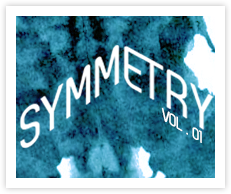

Fuel Reimbursement Campaign: Crisis or Opportunity?
Emily MacIsaac // November 23, 2012

A number of American customers complained to the Environmental Protection Agency (EPA) arguing that their cars were not as fuel efficient as claimed by Hyundai and Kia. The EPA conducted an audit only to find inconsistencies between their results and 13 models of Hyundai and Kia cars. The North American branches of the Hyundai (and Kia) Automotive Group followed up only to find “procedural errors” at their testing facilities in Korea[1].
On Friday November 2, Hyundai Auto Canada Corp. and Kia Canada Inc. issued a news release announcing that “they are correcting the fuel consumption ratings for approximately 172,000 vehicles sold between 2010 and 2012.[2]” That may not sound like a lot, but if you add up the 900,000 vehicles in America it adds up.
This adjustment affects 13 models in total including the North American Car of the Year, the Hyundai Elantra. How big is the discrepancy? The fuel consumption ratings on the vehicles in question were overstated by 0.3 litres per 100 kilometres (3%). And Hyundai and Kia will not only reimburse affected owners for their mileage to date but also their future mileage with an additional 15 percent as compensation.
To illustrate what this could mean for the average Canadian affected, Chad Heard, Hyundai Canada spokesperson explained that “a customer living in Toronto who paid on average $1.29 a litre and drove 20,000 kilometres can expect about $85 to $95 compensation annually, plus 15% in additional compensation for the inconvenience of the fuel-consumption rate change.[3]”
Taking these estimates into account, plus the extra 15% compensation, Hyundai and Kia (Canada) could be dishing out approximately $104 million annually, according to the National Post (same as footnote 3).
This is a significant wad of cash to hand out for what may or may not have been noticed by most customers. Over the next couple of weeks or even months it will be interesting to see what customers and potential customers think and choose. Will this effect customer loyalty? Will this discourage or influence potential future customers?
From a PR standpoint, let’s take a quick look at what they’ve done and if it will be enough.
According to an anonymous employee, employees were briefed prior to the public announcement, stickers were removed from cars on site, brochures were pulled, and anyone calling was referred to the website. Furthermore, letters were supposedly sent to customers affected as well.
Hyundai and Kia posted a version of their news release on their American and Canadian websites announcing a teleconference that media could dial in to.
During the announcement both in Canada and the US, the president and CEOs were saying all the right key messages such as “We’re extremely sorry” and “We’re going to make this right[4]”.
Third party websites were set up, one called “kiafuelconsumption.ca” and the other “hyundaifuelconsumption.ca” for customers to explain their situation, find out if they are eligible, and how to apply for the reimbursement program.
A quick browse of their homepage and you will see that it’s not easy to find this information, however. It’s certainly not part of their main slider. Trying to minimize the impact, perhaps? Instead, you’ll find the information in their “news” section and featured as a smaller icon labelled “Fuel Reimbursement Program” that takes you to the third part of the site lower down the homepage. Fuel Reimbursement Program – talk about positive spin!
They also took to social media to get their message out to the public.
Media have been rather critical of the situation. From the Globe and Mail to the National Post, critics are calling this an embarrassment and a costly mistake estimating hundreds of millions of dollars the company will have to shell out – not to mention a possible law suit from a consumer watchdog group in the state of California.
Hyundai and Kia have said the right things and for the most part covered all their bases, but was it enough? We’ll see in the months to come if customer loyalty will remain strong, and if investors remain confident. The fuel economy of their cars are a major pillar the company has prided itself on, and it is certainly too soon to determine if this is a major PR crisis or a simple bump in the road.
Own a Hyundai or Kia? Check out www.kiafuelconsumption.ca, and/or www.hyndaifuelconsumption.ca to see if you’re eligible for the Fuel Reimbursement Program.
